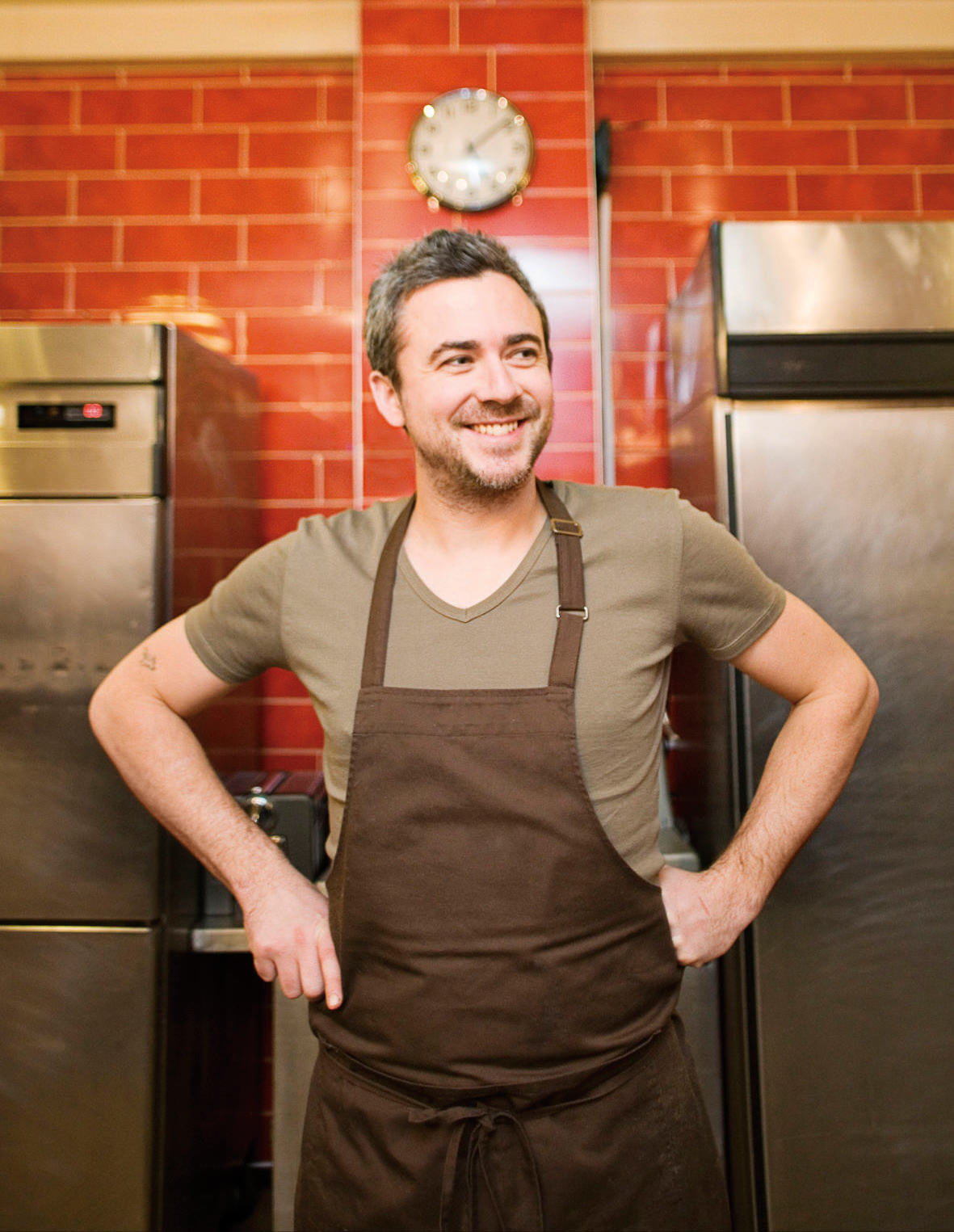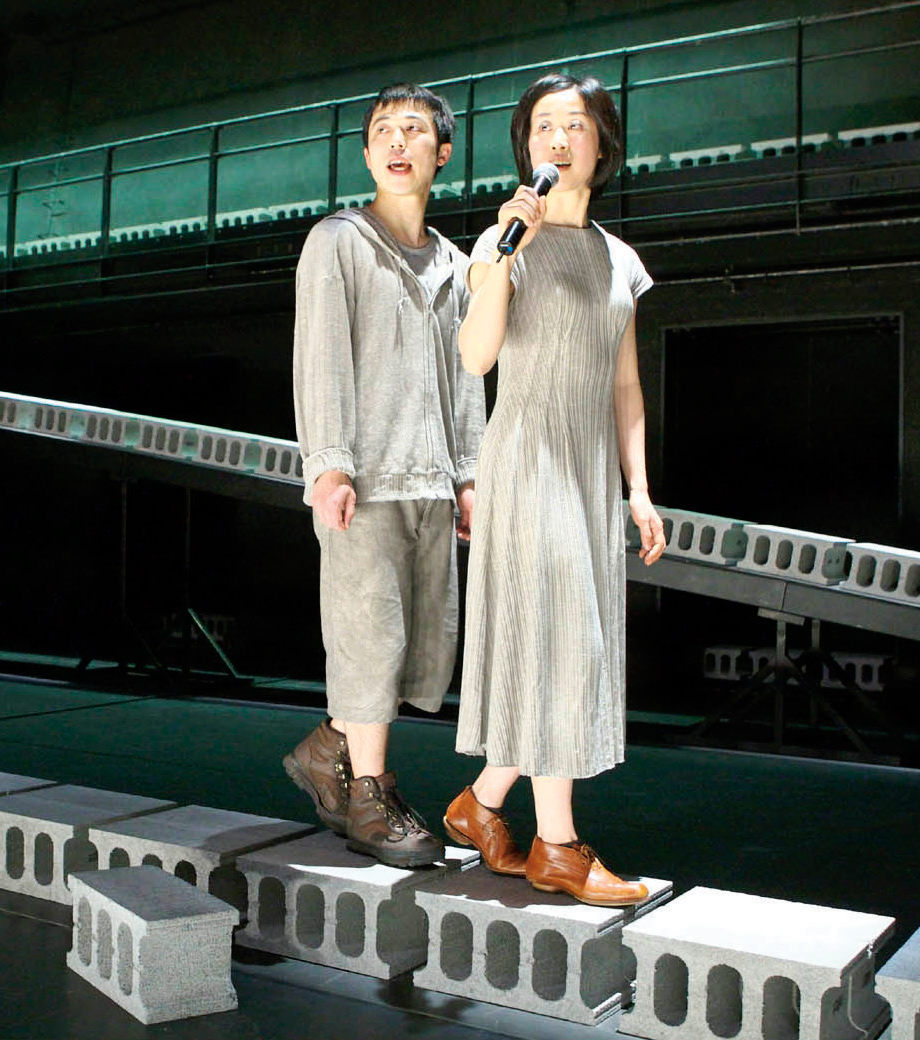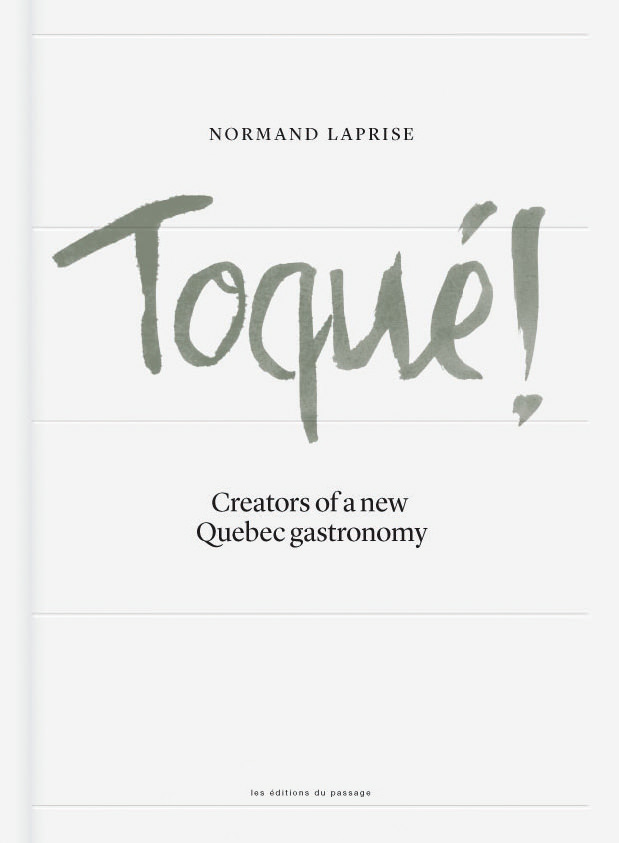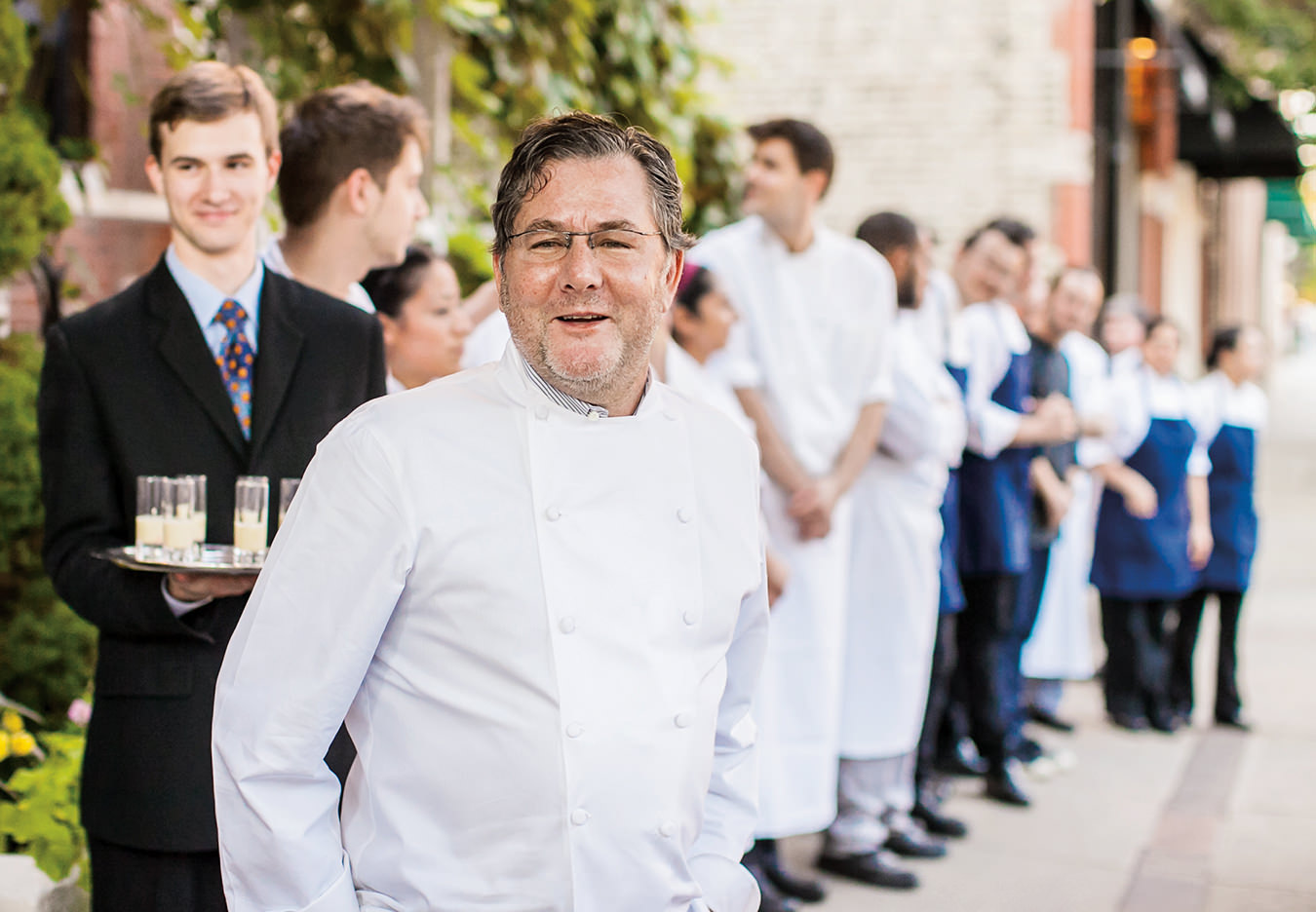-
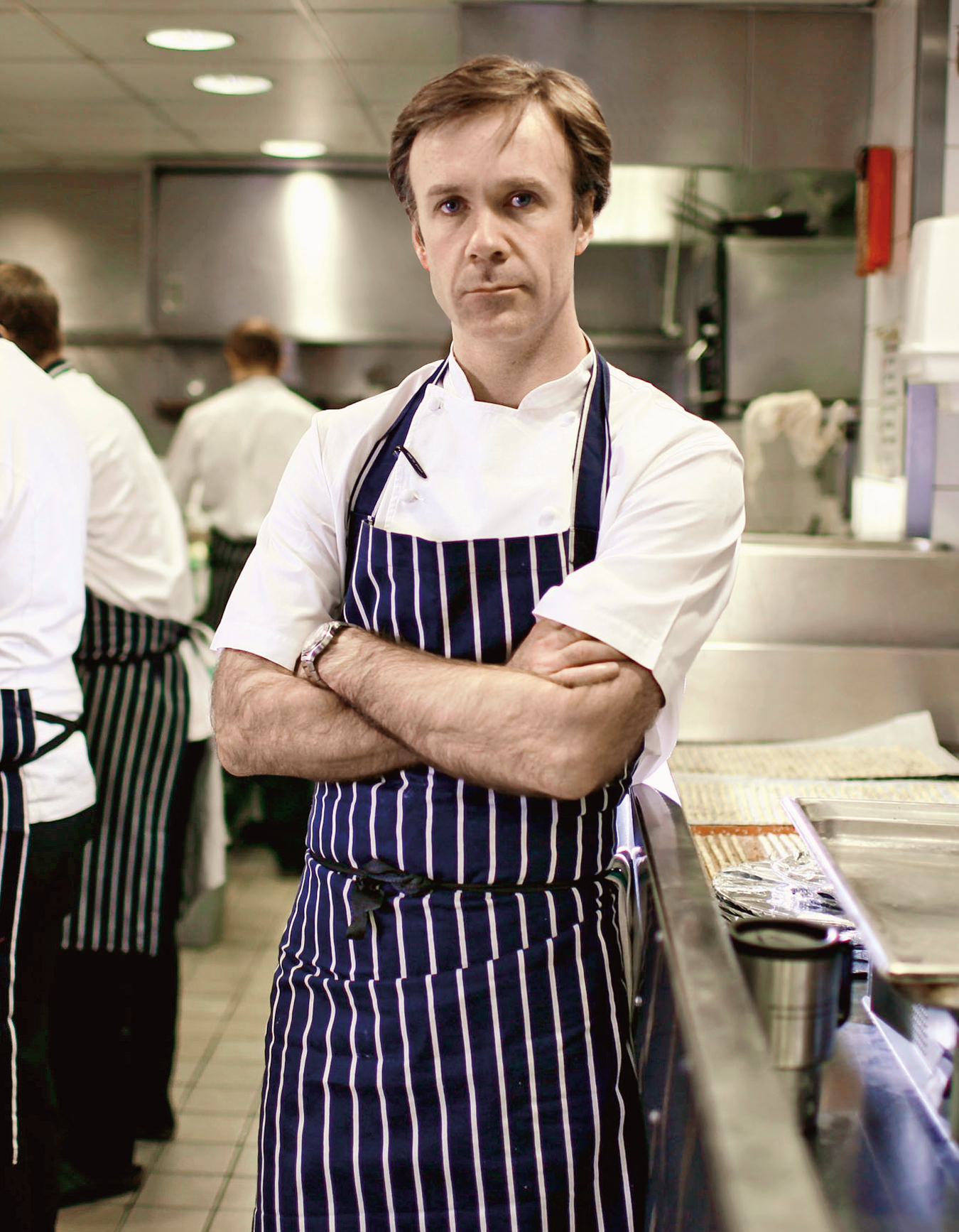
Chef Marcus Wareing.
-

Two-Michelin-star restaurant Marcus, at the Berkeley Hotel.
-

Marcus Wareing’s flagship restaurant is one of only 11 holders of multiple Michelin stars in London.
-
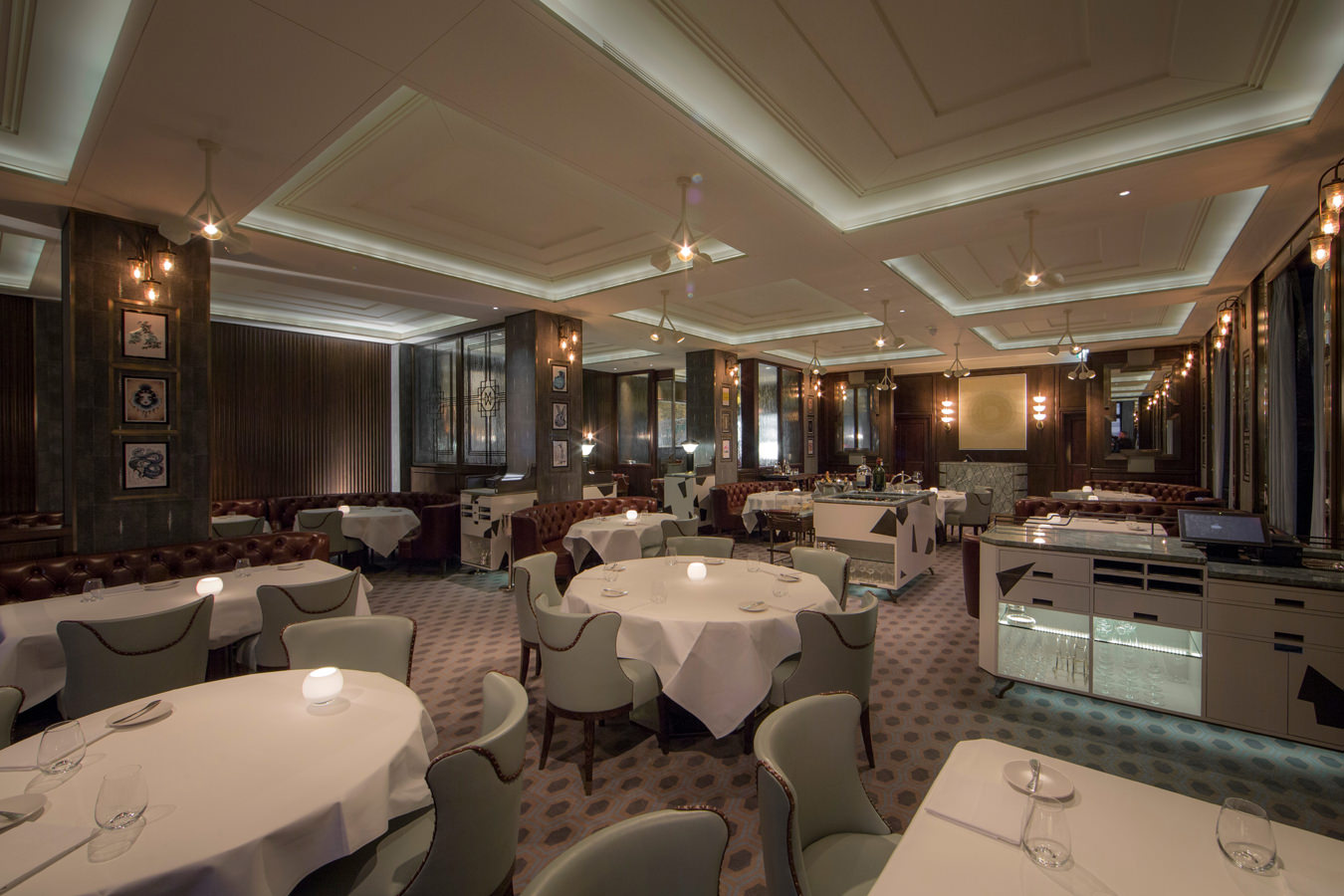
Marcus, at the Berkeley Hotel.
-

Marcus, at the Berkeley Hotel.
-
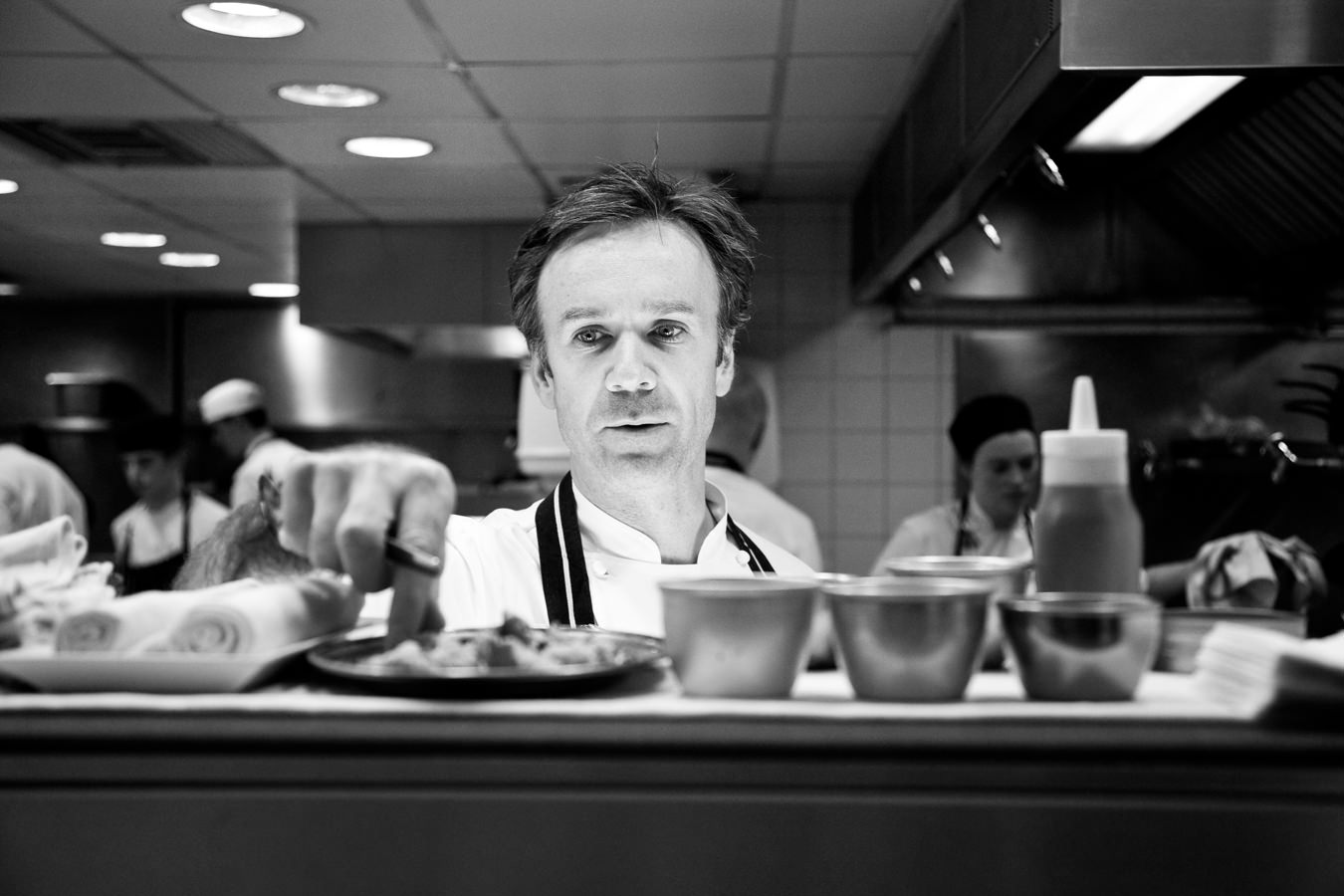
Chef Marcus Wareing.
-

Marcus, at the Berkeley Hotel.
Chef Marcus Wareing
The Englishman.
It is hard to square the charming and eloquent chef standing here in the kitchen of his two-Michelin-star restaurant in London, the very picture of calm and cordiality, with the ferocious reputation that precedes him. Marcus Wareing, the fearsome perfectionist who famously feuded with one of Britain’s most notorious chefs and whose criticism as a culinary judge on the TV series Great British Menu once caused a contestant to quit the show in a fit, appears to have mellowed.
If he has indeed become more serene, it might be because the 45-year-old is clearly relishing his position as a chef at the top of his game. Wareing remains one of the finest chefs in London, and it has led him to the helm of what is now an armada of restaurants.
Better known in the United Kingdom, where his professional history reads like a virtual who’s who of great food icons, Marcus Wareing’s earliest exposure to the culinary world was anything but glamorous. From the age of 11, Wareing was helping his father deliver fruit and vegetables to local businesses, an experience that helped shape an appreciation for ingredients at an early age. “My dad always placed great importance on seasonal eating,” Wareing recalls. “By the very nature and ethos of his business of supplying fruit and veg in season, at the peak of their ripeness and flavour, this generally dictated the way we ate at home growing up. My dad’s work ethic has always been an inspiration—and this has continuously shaped my outlook and career.”
Fresh out of catering school, the young chef landed a position in one of London’s most renowned kitchens, working at the Savoy Hotel under chef Anton Edelmann. From there he moved to Le Gavroche, working for legendary chef Michel Roux, where he met another young chef, Gordon Ramsay. The two would work together for the next 15 years. Wareing was instrumental in Ramsay’s first major success, Aubergine, where he was sous chef. It was while working there in 1995 that the Restaurant Association named Wareing the Young Chef of the Year. With that accolade under his toque blanche, the chef set off on a year-long journey, working in the United States alongside Daniel Boulud, and in France with Guy Savoy.
Marcus Wareing remains one of the finest chefs in London, and it has led him to the helm of what is now an armada of restaurants.
Any young cook would envy the list of chefs Wareing has worked alongside, and he still seems to be a bit in awe of them: “I’ve been incredibly lucky and privileged to have worked under some of the greatest chefs of all time. Michel Roux taught me to stay true to myself, keep my focus, and never perform or put on an act that others may want you to; but my experience with each one of them has all helped to shape my career and get me where I am today. Learning from the very best has enabled me to become the best chef that I can be.”
Wareing’s rise was not without its setbacks, however. His relationship with Ramsay, a man he once considered his mentor, ended badly in a very public way. In 2008, Wareing was running Ramsay’s restaurant Pétrus in the Berkeley hotel, but was unhappy with the way Ramsay’s corporation was interfering in the kitchen and wanted to strike out on his own. For months, there were rumours in London’s restaurant scene that the Berkeley was going to sever its relationship with Ramsay and work exclusively with Wareing. The rumours were confirmed when Wareing took over the restaurant’s lease in September of that same year. Lawsuits ensued, and the acrimonious split ended 15 years of close friendship, with Wareing at one point saying, “If I never speak to that guy again for the rest of my life, it wouldn’t bother me one bit.”
His perspective on that situation today is much more sanguine. “I learned a lot during my time with Gordon,” he recalls. “I don’t like to dwell on any negativity surrounding our relationship as we have both moved on and I have no ill feelings towards him. I wish him the best for all his future endeavours. He is so passionate and driven, and despite everything which happened in the past, I know this steadfast approach will continue to bring him success.”
Wareing’s own success has left him precious little time to dwell on any negative relationships, anyway. Within two years of re-launching Pétrus as Marcus Wareing at the Berkeley, the restaurant was named Best Restaurant in London by Harden’s restaurant guide and Time Out, and received two Michelin stars. In 2011, he opened the Gilbert Scott in the St. Pancras Renaissance Hotel, a restaurant with a menu that reflects British tradition, and draws much more on the classics he grew up with: Dorset crab, Galloway beef, Herdwick lamb, and the best local and seasonal produce. “My move from classical French cooking to a style that is more British inspired is one that was a fairly natural progression,” he says of the change. “Both cuisines have incredible produce that needs very little doing to it, just simple preparation and cooking. My own heritage from Britain plays a great part in my style now, and I am passionate about the amazing produce we have available across all the seasons, and the U.K. is a very exciting place in cooking to be.”
“I wanted to create a more relaxed formality to fine dining, as I felt that there had been a clear shift in the way that people wanted to experience fine dining, moving away from a stuffier and highly formal environment to a more accessible and personal one.”
The move to a more casual, British-focused menu at the Gilbert Scott seems to have inspired the chef. Early in 2014, he closed his flagship restaurant at the Berkeley and embarked on a $2.5-million refurbishment, making the space more relaxed, “less stuffy”, in the chef’s own words, and “more like a really good dinner party.” Interior designer Robert Angell was brought in to retain the restaurant’s timeless elegance. “I wanted to create a more relaxed formality to fine dining, as I felt that there had been a clear shift in the way that people wanted to experience fine dining, moving away from a stuffier and highly formal environment to a more accessible and personal one.” The restaurant, again, was rebranded simply as Marcus.
The food at the two-Michelin-star Marcus remains decidedly upscale, however, with dishes like grilled asparagus with a poached and caramelized hen’s egg, foie gras served hot or cold with blood orange and rosemary, and burrata with lardo and frozen tomato. The £120 ($220 Canadian) tasting menu remains one of London’s most exclusive, but there’s also a £49 ($90) lunch tasting menu available.
The chef’s latest venture, Tredwell’s in London’s Covent Garden, marks his first truly casual venture, and is located in the dynamic Seven Dials neighbourhood of London’s West End. Families and young locals pack the Deco, booth-lined space throughout the week for tastes of sea bass with lentils and crispy shallots, slow-cooked pork belly and cheek with fennel and juniper, and house-made salted caramel soft-serve ice cream. The Sunday roasts are especially popular, with expert renditions of classic dishes like roast beef with Yorkshire pudding and gravy, and roasted chicken with bread sauce.
Wareing isn’t in the kitchen himself at all these restaurants, of course. “I will always be in my chef whites at Marcus,” he maintains. “It is where I feel most comfortable and where I do some of my greatest work, but I am slowly taking a step back from the hot plate and moving further into the role of a restaurateur.”
At this stage in his remarkable career, restaurateur is by no means Wareing’s only job. He recently replaced Michel Roux Jr. as a judge on MasterChef: the Professionals, has published five cookbooks, and recently trained Sienna Miller and Bradley Cooper on the intricacies of working in a professional kitchen for upcoming film roles. For all the chef has going on, he shows no signs of slowing down. “I feel that I have just begun the next phase of my career,” he says with obvious relish, “and I am more excited than ever.”

